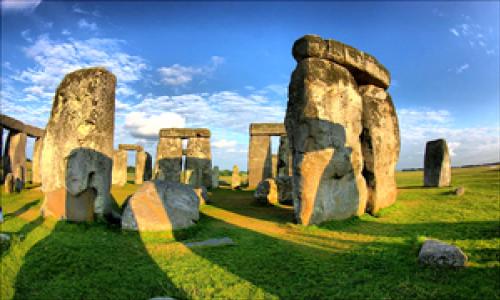Casinos have long been a symbol of excitement, luxury, and chance. Their https://nidaeladabi.com/ allure is undeniable, drawing millions of people from all over the world into their gleaming halls, offering an escape into a world of fortune and glamour. But how did these establishments evolve from humble beginnings to the grand palaces of entertainment they are today?
Origins of Casinos: Gambling Through History
The origins of casino-like establishments date back to ancient civilizations. The concept of chance-based games has existed for millennia, with early forms found in ancient China, Egypt, and Rome. Archaeologists have uncovered evidence of dice games, rudimentary forms of cards, and betting on gladiator fights. However, it was in the 17th century that the first true casino came into existence.
The term “casino” itself originates from the Italian word casa, meaning “house.” In Venice, Italy, during the mid-1600s, the Casino di Venezia was opened, marking the first recorded casino. The gaming activity inside was just one of many attractions, offering a place for socializing and entertainment. This venue sparked a trend that would soon spread throughout Europe and beyond.
The Birth of Modern Casinos
Casinos, as we know them today, evolved rapidly in the 18th and 19th centuries. In Monte Carlo, the Monaco Casino opened its doors in 1856, setting the standard for modern-day gambling establishments. Its luxurious design, coupled with the high stakes games it offered, cemented its place as one of the world’s most famous casinos. The success of Monte Carlo’s casino not only made it a tourist destination but also helped establish the notion of casinos as symbols of wealth and exclusivity.
In America, casinos began to gain prominence in the 20th century. Las Vegas, often considered the world capital of entertainment, became synonymous with gaming. The legalization of casinos in Nevada in 1931 was a turning point for the industry, and the opening of the iconic Las Vegas Strip in the 1940s transformed the city into a mecca for gamblers, entertainers, and tourists.
The Psychology of Gambling: Why We Play
What draws people to casinos? For many, it’s the thrill of the game—the chance to win big with a single roll of the dice or a turn of the card. But there’s also an undeniable psychological aspect to gambling. The concept of risk and reward taps into a deep-seated human desire for excitement and control. Studies have shown that humans are naturally wired to seek out challenges and rewards, and casinos provide the perfect environment for this instinct to thrive.
The sounds of slot machines, the flashing lights, and the energy in the air all contribute to the excitement. The element of chance, combined with the possibility of winning large sums of money, creates an intoxicating atmosphere. But it’s not just about the gambling. Many modern casinos also offer world-class dining, entertainment, and accommodations, ensuring that visitors are engaged in a holistic experience.
The Evolution of Casino Games
From the spinning wheel of fortune in the early days to the digital slot machines of today, casino games have undergone significant transformations. Classic table games such as poker, blackjack, and roulette continue to be popular, but technology has brought new dimensions to the casino experience.
Online gambling, a growing trend in the last few decades, allows people to access casino games from anywhere in the world. The rise of mobile gaming and virtual reality casinos has made it easier for players to enjoy their favorite games without ever setting foot in a physical casino. Some casinos now offer live-streamed games where players interact with real dealers in real-time, adding an element of realism to online play.
Casinos as Entertainment Hubs
Today’s casinos are not just places for gambling but have evolved into full-fledged entertainment complexes. Many of the world’s top casinos, such as the Venetian in Las Vegas, the Marina Bay Sands in Singapore, and the Casino de Monte-Carlo in Monaco, are not just about gaming but are multi-purpose hubs offering shopping malls, theaters, fine dining, and even luxury hotels.
The Las Vegas Strip, in particular, has become synonymous with lavish performances by world-famous entertainers. Stars like Elvis Presley, Celine Dion, and Cirque du Soleil have performed in some of the most iconic venues within these casinos, cementing their status as entertainment destinations rather than just places for high-stakes gambling.
The Future of Casinos: Technology and Regulation
As technology continues to advance, the casino industry is adapting to meet the changing needs and preferences of players. Virtual reality casinos, where players can walk around in a 3D environment and interact with others, are becoming a reality. Blockchain technology is also starting to influence the industry, allowing for provably fair games and secure transactions.
However, with the growth of online gambling and technological advancements, casinos face increasing scrutiny and regulation. Governments around the world are paying more attention to gambling laws, ensuring that the industry remains fair and transparent, while also addressing issues such as problem gambling and addiction.
Conclusion: The Everlasting Allure
The enduring appeal of casinos can be attributed to their ability to tap into the human desire for risk, reward, and entertainment. From their humble origins to their current status as entertainment giants, casinos have continually evolved to stay relevant in an ever-changing world. Whether visiting a physical casino or enjoying the convenience of online gaming, the allure of the gamble continues to captivate millions worldwide.
As technology continues to shape the industry, it’s clear that the future of casinos is brighter than ever, offering new opportunities for both players and operators. Yet, despite all the changes, one thing remains constant: the thrill of the game.



